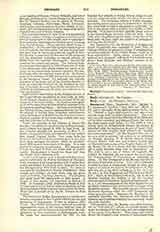

Emmanuel (Sept., Emmanouel; Heb. `MNUAL; A. V., Immanuel) signifies “God with us” (Matt., i, 23), and is the name of the child predicted in Is., vii, 14: “Behold a virgin shall conceive, and bear a son, and his name shall be called Emmanuel”. The various views advanced as to the identity of the child cannot be fully explained and discussed here; the following observations must suffice: (I) The child is not a merely ideal or metaphorical person; he cannot be identified with the regenerate people of Israel (Hoffmann), nor with religious faith (Porter), for “he shall eat butter and honey”. (2) The Prophet does not refer to a child in general, but points to an individual (cf. Roorda, Kuenen, W. R. Smith, Smend, Duhm, Cheyne, Marti); both text and context require this. (3) The child is not a son of the Prophet Isaias (cf. Hitzig, Reuss); Is. viii, 1-4, shows that the Prophet’s son has a name different from that of Emmanuel. (4) The child is not a son of Achaz (cf. Lagarde, Mc-Curdy); for Ezechias did not possess the most essential characteristics of Emmanuel as described by Isaias. (5) The Emmanuel is the Messias foretold in the other prophecies of Isaias. In Is., viii, 8, Palestine is called the land of Emmanuel, though in other passages it is termed the land or the inheritance of Yahweh (Is., xiv, 2, 25; xlvii, 6; Osee, ix, 3; Jer., ii, 7; xii, 14; etc.), so that Emmanuel and Yahweh are identified. Again, in the Hebrew text of Is., viii, 9, 10, the Prophet predicts the futility of all the enemies’ schemes against Palestine, because of Emmanuel. In ix, 6, 7, the characteristics of the child Emmanuel are so clearly described that we can doubt no longer of his Messianic mission. The eleventh chapter pictures the Messianic blessings which the child Emmanuel will bring upon the earth. Moreover, St. Matthew (i, 23) expressly identifies the Emmanuel with Jesus the Messias, and Christian tradition has constantly taught the same doctrine.
The question why the Messias was called Emmanuel, or “God with us”, admits of a double answer: the name is a pledge of Divine help, and also a description of the nature of the Messias. King Achaz had not believed the Prophet’s first promise of deliverance from his enemies, Rasin, King of Syria, and Phacee, King of Israel (Is., vii, 1-9). And when the Prophet tried a second time to restore his confidence, Achaz refused to ask for the sign which God was ready to grant in confirmation of the prophetic promise (vii, 10-12). The Prophet, therefore, forces, in a way, King Achaz to confide in God, showing that the Messias, the hope of Israel and the glory of the house of David, implies by his very name “Emmanuel”, or “God with us”, the Divine presence among his people. A number of the Fathers, e.g. St. Irenaeus, Lactantius, St. Epiphanius, St. Chrysostom, and Theodoret, regard the name “Emmanuel”, not merely as a pledge of Divine assistance, but also as an expression of the mystery of the Incarnation by virtue of which the Messias will be “God with us” in very deed.
A. J. MAAS

